Related Research Articles

Sir Christopher Frank Carandini Lee was an English actor, singer, and military officer. In a career spanning more than sixty years, Lee became known as an actor with a deep and commanding voice who often portrayed villains in horror and franchise films. Lee was knighted for services to drama and charity in 2009, received the BAFTA Fellowship in 2011, and received the BFI Fellowship in 2013.
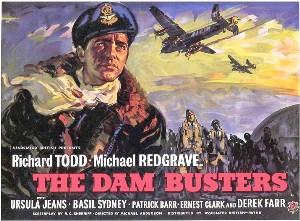
The Dam Busters is a 1955 British epic war film starring Richard Todd and Michael Redgrave. It was directed by Michael Anderson. The film recreates the true story of Operation Chastise when in 1943 the RAF's 617 Squadron attacked the Möhne, Eder, and Sorpe dams in Nazi Germany with Barnes Wallis's bouncing bomb.

Geoffrey Leonard Cheshire, Baron Cheshire, was a highly decorated Royal Air Force (RAF) pilot and group captain during the Second World War, and a philanthropist.

Group Captain Sir Douglas Robert Steuart Bader, was a Royal Air Force flying ace during the Second World War. He was credited with 22 aerial victories, four shared victories, six probables, one shared probable and 11 enemy aircraft damaged.

The Club is a satirical film based on the play of the same name by the Australian playwright and dramatist David Williamson. It follows the fortunes of an Australian rules football club over the course of a season, and explores the clashes of individuals from within the club. It was inspired by the backroom dealings and antics of the Victorian Football League's Collingwood Football Club.
From 1939 to 1940, the French Third Republic was at war with Nazi Germany. In 1940, the German forces defeated the French in the Battle of France. The Germans occupied the north and west of French territory and a collaborationist régime under Philippe Pétain established itself in Vichy. General Charles de Gaulle established a government in exile in London and competed with Vichy France to position himself as the legitimate French government, for control of the French overseas empire and receiving help from French allies. He eventually managed to enlist the support of some French African colonies and later succeeded in bringing together the disparate maquis, colonial regiments, legionnaires, expatriate fighters, and Communist snipers under the Free French Forces in the Allied chain of command. In 1944, after the Allies had landed in Normandy and the southern front moved from North Africa across the Mediterranean into Italy and Provence, these forces routed the German Army, and Vichy officials fled into Germany.
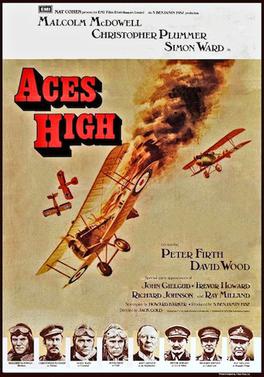
Aces High is a 1976 war film starring Malcolm McDowell, Peter Firth, Christopher Plummer and Simon Ward. The film, which is an Anglo-French production, is based on the 1928 play Journey's End by R. C. Sherriff with additional material from the memoir Sagittarius Rising by Cecil Lewis. It was directed by Jack Gold. The screenplay was written by Howard Barker.

The Syria–Lebanon campaign, also known as Operation Exporter, was the invasion of Syria and Lebanon in June and July 1941 by British Empire forces, during the Second World War.

The Way to the Stars is a 1945 Anglo-American black-and-white Second World War drama film made by Two Cities Films. The film was produced by Anatole de Grunwald, directed by Anthony Asquith, and stars Michael Redgrave, John Mills, Rosamund John, and Stanley Holloway. In the United States it was shortened by 22 minutes, and the shortened version was distributed by United Artists under the title Johnny in the Clouds.
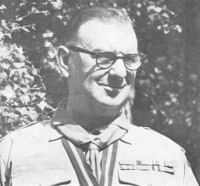
William Henry Ralph Reader, known as Ralph Reader, was a British actor, theatrical producer and songwriter, known for staging the original Gang Show, a variety entertainment presented by members of the Scouting movement, and for leading community singing at FA Cup Finals.
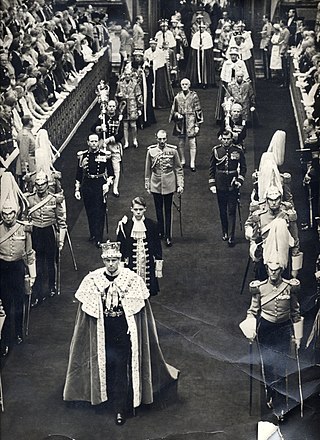
Air Marshal Sir Beresford Peter Torrington Horsley, was a senior Royal Air Force commander.
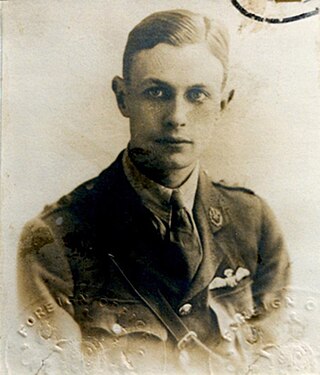
Victor Maslin Yeates, often abbreviated to V. M. Yeates, was a British fighter pilot in World War I. He wrote Winged Victory, a semi-autobiographical work widely regarded as one of the most realistic accounts of aerial combat and the futility of war.

Darling Lili is a 1970 American romantic-musical spy film, written by William Peter Blatty and Blake Edwards, the latter also directing the film. It stars Julie Andrews, Rock Hudson, and Jeremy Kemp, with music by Henry Mancini and lyrics by Johnny Mercer. This was the last full musical to have song lyrics written by Mercer.

The Free French Air Forces were the air arm of the Free French Forces in the Second World War, created by Charles de Gaulle in 1940. The designation ceased to exist in 1943 when the Free French Forces merged with General Giraud's forces. The name was still in common use however, until the liberation of France in 1944, when they became the French Air Army. Martial Henri Valin commanded them from 1941 to 1944, then stayed on to command the Air Army.

The military history of Gibraltar during World War II exemplifies Gibraltar's position as a British fortress since the early 18th century and as a vital factor in British military strategy, both as a foothold on the continent of Europe, and as a bastion of British sea power. During World War II, Gibraltar served a vital role in both the Atlantic Theatre and the Mediterranean Theatre, controlling virtually all naval traffic into and out of the Mediterranean Sea from the Atlantic Ocean.
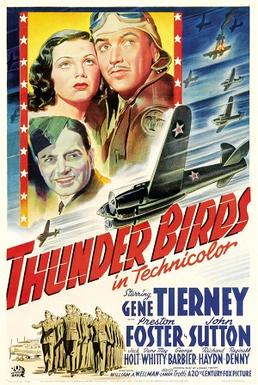
Thunder Birds is a 1942 Technicolor film directed by William A. Wellman and starring Gene Tierney, Preston Foster, and John Sutton. It features aerial photography and location filming at an actual Arizona training base of the United States Army Air Forces named Thunderbird Field No. 1 during World War II.

James Archibald Findlay MacLachlan was a Royal Air Force (RAF) fighter pilot and flying ace of the Second World War. MacLachlan was credited with 16 German and Italian aircraft shot down in approximately 250 missions—7 were at night of which two were achieved over Malta in 1941 and 5 over France in 1942.
Flight Lieutenant William Louis Buchanan Walker, AE was, at the time of his death, the oldest surviving pilot from the Battle of Britain. His poem "Our Wall" about the Battle of Britain is inscribed on a special plinth aside the Christopher Foxley-Norris Memorial Wall of the Battle of Britain Memorial, Capel-le-Ferne, Kent.
Flight Lieutenant Anthony Noel Snell, was a British RAF pilot during the Second World War. He flew in the North African campaign in 1942 and was shot down during the Allied invasion of Sicily in 1943. Initially captured by the Germans he escaped from a firing squad but was recaptured. He again escaped German captivity whilst in Italy and became one of the very few men to be awarded the DSO exclusively for escaping from the enemy.

During the Second World War (1939–1945), the Gambia was part of the British Empire as the Gambia Colony and Protectorate. At the outbreak of war between the British Empire and Nazi Germany in September 1939, the Gambia was home to the Gambia Company of the Royal West African Frontier Force (RWAFF).
References
- ↑ Laurie Collier; Laurie Collier Hillstrom; Joyce Nakamura (1992), Major authors and illustrators for children and young adults, p. 619